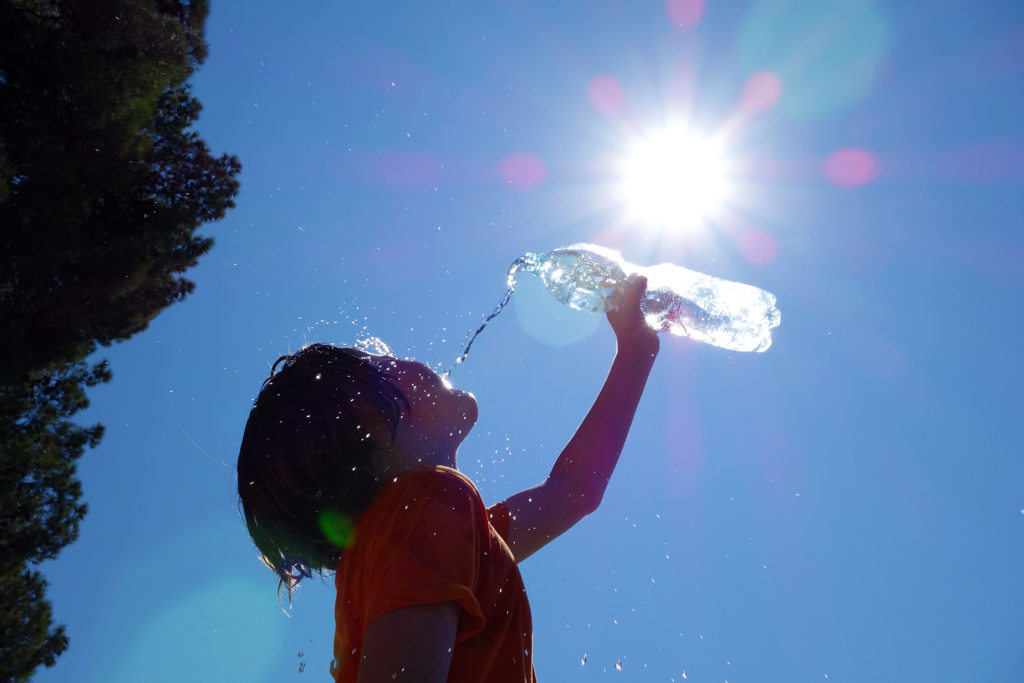How to Stay Safe in Sweltering Heat

This summer, our planet experienced the hottest average temperatures on record. From July 3 to July 5, the world’s average temperature was the hottest ever recorded, according to the University of Maine. Because of climate change and the arrival of El Niño conditions, the heat is here to stay – and it can be dangerous. To help prepare you for hotter temperatures, here are three ways to stay safe this summer.
Choose the right sunscreen
To ensure adequate protection from the sun’s harmful rays, it is important to choose a sunscreen that offers both UVA and UVB protection. This will protect your skin from the effects of ultraviolet-B (UVB) rays, such as sunburns and skin damage, as well as ultraviolet-A (UVA) rays that can increase the risk of skin cancer.
“Look for sunscreens that contain zinc oxide or titanium dioxide as these ingredients block both types of rays, said John A. Holets, MD, a physician with Penn Highlands Family Medicine in Monongahela, Penna.
Be sure to choose a sunscreen with an SPF of 30 or higher too. And remember that just because a sunscreen has a higher SPF doesn’t mean higher protection. SPF protection does not increase proportionately with the SPF number. SPF 30 absorbs 97% of the sun’s rays, while SPF 50 absorbs just 1% more. Choose anything over 30 SPF, apply liberally and reapply every two hours.
Drink plenty of fluids
You should be drinking plenty of water all year long, but especially in the hot summer months. Drink fluids throughout the day, regardless of how active you are, and do not wait until you are thirsty to drink.
“The type of liquid you drink also matters,” said Dr. Holets. “Sugary drinks can actually cause your body to lose fluids, and very cold drinks can cause stomach cramps.”
Heavy sweating depletes much-needed minerals and salt from your body, and a sports drink can replace these nutrients. When choosing a sports drink, look for a low-sugar option.
Know the symptoms of heat-related illness
High heat and humidity or prolonged exposure without relief or adequate fluid intake can cause heat-related illness. There are three types: heat cramps, heat exhaustion and heat stroke.
Heat cramps are often the first sign of a heat-related illness, and it may lead to more severe illnesses, such as heat exhaustion or stroke. Symptoms of heat cramps include painful muscle cramps and spasms, usually in legs and abdomen as well as heavy sweating. If you experience these symptoms, apply firm pressure on cramping muscles or gently massage to relieve spasms. You can also take sips of water, but if you feel nauseous, stop drinking. If cramps last longer than one hour, seek immediate medical attention.
Symptoms of heat exhaustion include heavy sweating; weakness or tiredness; cool, pale, clammy skin; fast, weak pulse; muscle cramps; dizziness, nausea or vomiting; headache; and fainting. If you suspect heat exhaustion, move to a cooler environment, remove tight-fitting clothing and apply cool, wet clothes to the skin. Seek immediate medical attention if you vomit or symptoms worsen or last longer than one hour.
Heat stroke is the most severe heat-related illness. It is a life-threatening emergency and requires immediate medical attention. Symptoms include throbbing headache; confusion; nausea; dizziness; body temperature above 103°F; hot, red, dry or damp skin; rapid and strong pulse; fainting; and loss of consciousness. If you or a loved one is experiencing these symptoms, call 9-1-1. While waiting for emergency personnel, move to an air-conditioned area and reduce body temperature by applying cool cloths or a bath. Do not give fluids to a person experiencing symptoms of heat stroke.
Summer is a great time for being outdoors but too much sun and or heat exposure can require medical attention. While heat exhaustion and heat stroke require immediate attention, people with severe sunburns may need to see a physician or provider. Penn Highlands Family Medicine offers comprehensive primary care at convenient locations throughout Pennsylvania. From sunburns to diagnosing illnesses and treating minor injuries, the physicians and providers can take care of your whole family – from infants through seniors. To make an appointment or to learn more, visit www.phhealthcare.org/primarycare.

